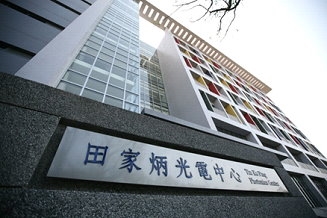Tin Ka Ping Photonics Center
NCTU has devoted to photonics research dated back to 1960. In 1980, NCTU established the first photonics graduate institute in Taiwan and began to lead the photonics research domestically as well as to become internationally recognized. The Tin Ka Ping Photonics Center was formerly established in 2007, in honor of the donation of Mr. Tin Ka Ping for helping our development of photonics education and research. The center members have been actively participated in the NCTU “Frontier Photonics Center” project supported by the MOE “Aiming for the Top University Program”. Every year the center members also carry out various types of projects from the government agencies (MOST, MOEA, …) as well as the industrial companies.
Overall speaking, the main vision of the Tin Ka Ping Photonics Center is to further strengthen our research and education in the frontiers of photonics. Specifically, we want:
1. to become a world-class photonics research center that can compete/collaborate with other famous photonics centers in the world;
2. to continually achieve major research breakthroughs in the frontiers of photonics;
3. to achieve greater recognition via international collaboration;
4. to provide high-quality education in photonics and to train world-class photonics scientists and engineers;
5. to attract more high-quality students and researchers for devoting into photonics research and development;
Currently we have established strong research teams in the research area including [Nano-photonic technologies and devices] and [Communication and Information Photonics]. Many research results have been published on well known international journals and conferences every year. Some important breakthroughs have also been reported by international media. In the near future we will continue to participate in the NCTU “Frontier Photonics Center” project supported by the MOE “Aiming for the Top University Program”. We will also continue to attract more industrial projects for more directly helping the development of local industry.

